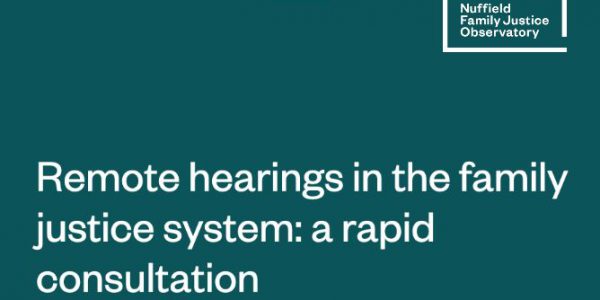Briefing paper
This briefing paper highlights the main findings of a rapid evidence review undertaken during April 2020 by Dr Natalie Byrom, Director of Research and Learning, Legal Education Foundation.
The coronavirus pandemic has required the justice system in England and Wales to pivot rapidly to remote working. In the family justice system this has translated into the widespread expansion of hearings conducted by telephone and video link. The use of court-based hearings is only contemplated in exceptional circumstances where the interests of justice and fairness require one, and where it is safe to do so (Macdonald 2020, para 3.3). This places significant discretion and responsibility in the hands of individual judges, who are tasked with determining whether particular arrangements are in the interests of justice during a period of intense uncertainty.
This briefing presents the results of a rapid evidence review, and explores whether any practical lessons can be drawn from existing research on the impact of remote hearings, with particular reference to the experience of vulnerable groups:
- What can the existing evidence tell us about the kinds of vulnerability that might be compounded by the use of remote hearings?
- What effective safeguards can be recommended to ensure that access to justice is maintained?
This paper accompanies a report that follows a two-week consultation on the use of remote hearings in the family justice system, commissioned by President of the Family Division. Both rapid studies were undertaken with a view to potentially helping to inform further guidance on the use of remote hearings through the crisis.
Organisations
-
 The Legal Education Foundation
The Legal Education Foundation










